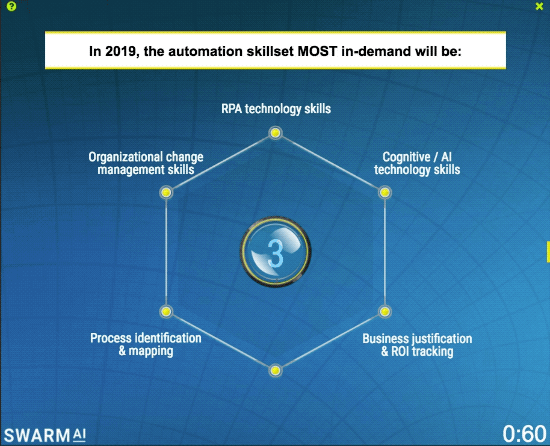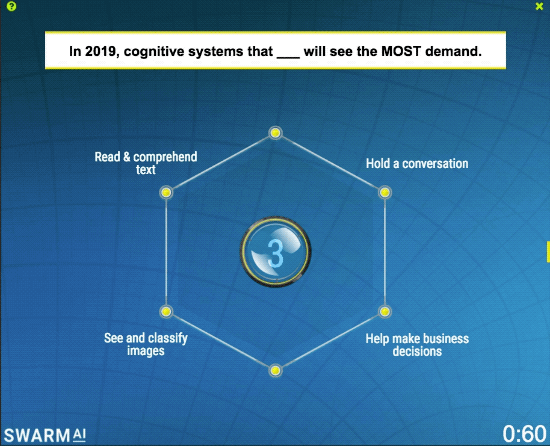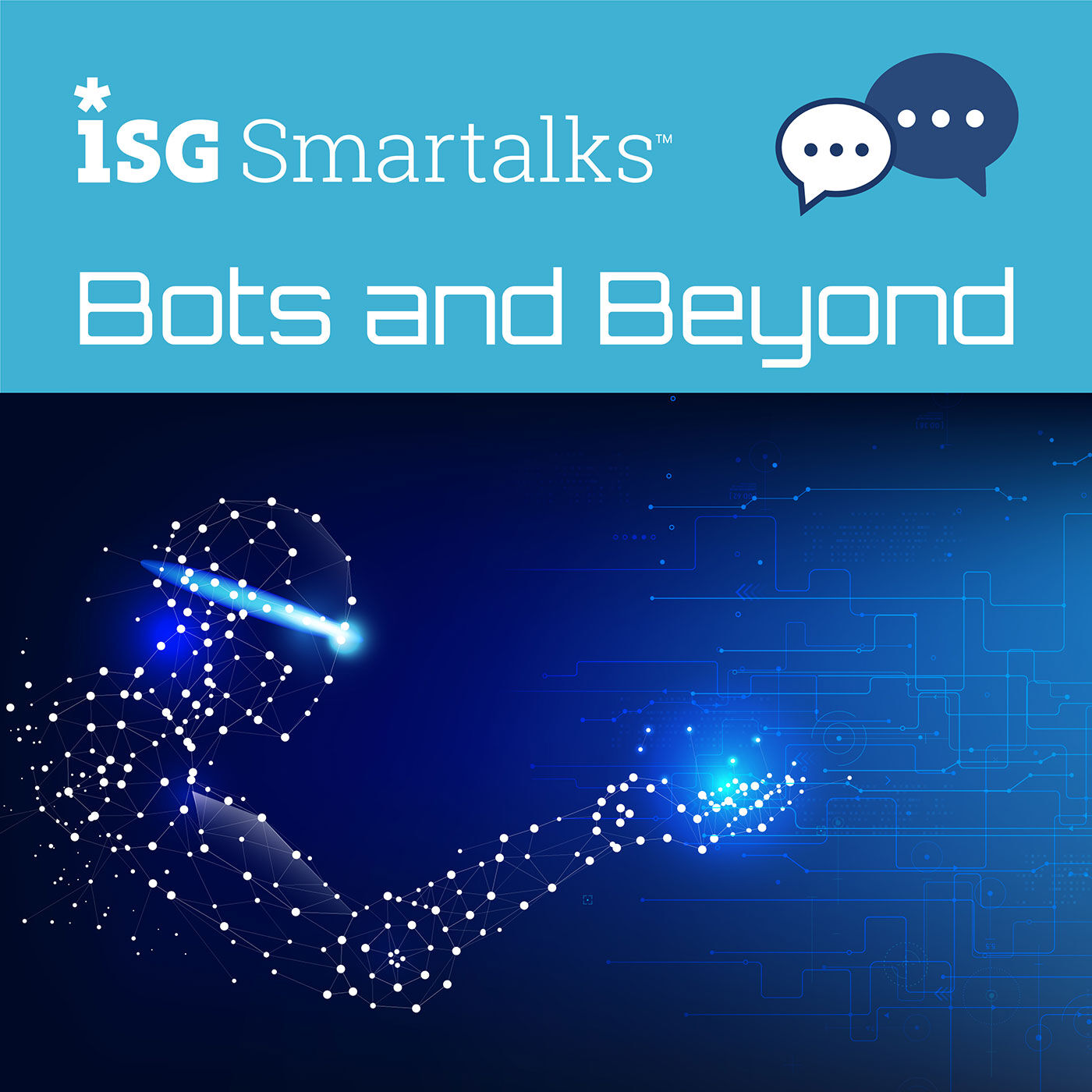Many enterprises are considering automation to reduce costs and improve productivity, data accuracy and compliance. Robotic process automation (RPA) can tackle repetitive and mundane processes, reduce errors and improve compliance, but it cannot read text, communicate with a person, interpret a contract, scrape information from an invoice, make a complex decision or improve over time. This is why automation centers of excellence (CoEs) are building cognitive capabilities into their RPA initiatives.
Our recent research shows that people involved in RPA think cognitive and AI technology skills for deploying and maintaining automations are most important to the future of automation while the highest demand for cognitive systems will be for those that can help make business decisions and complement their RPA technology.
At our annual ISG ISG U.S. Automation Summit in Manhattan last month, we revealed early findings from the new ISG Research “Bot 3.0” study, which measures the state of enterprise automation capability in companies in the U.S., Europe and Australia today. To measure the collective thinking of the attendees at the summit about where enterprises think the automation market is going, we performed real-time “swarm intelligence” using technology from Unanimous AI. The session enabled attendees to work toward consensus in response to a variety of questions. The responses to two of the questions give us insight into how enterprises plan to use artificial intelligence (AI) and other cognitive technologies in their automation deployments.
The questions were:
- In 2019, the automation skillset MOST in demand will be: a) RPA technology skills, b) cognitive / AI technology skills, c) business justification and ROI tracking, d) process identification and mapping, and e) organizational change management skills.
- In 2019, cognitive systems that will see the MOST demand will be: a) those that can hold a conversation with a human, b) those that help leaders make business decisions, c) those that see and classify images, and d) those that read and comprehend text.
The consensus of the group was that, in 2019, the automation skillset most in demand will be cognitive / AI technology skills with demand for RPA technology skills coming in a close second. (Figure 1).
Figure 1: Cognitive / AI Will be the Automation Skillset Most In Demand in 2019

Source: ISG Research
As to which cognitive capabilities will see the most demand in 2019, the group at the Summit felt it would be those that help make business decisions (Figure 2). An entrenched faction of the group participating in the swarm supported the idea that technology that can read and comprehend text also would be in great demand.
Figure 2: Helping Make Business Decisions

Source: ISG Research
Many automation technologies focus on automating tasks, rather than on automating entire end-to-end processes. Processes that require a high degree of human decision-making are not targets for traditional RPA tools. Narrow AI applications like natural language processing (NLP) and optical character recognition (OCR) can help bridge that gap.
Another area of technical skills related to RPA that we expect to grow in importance is conversational AI that can understand human intent and hold a human-like conversation. Conversational AI technologies have improved dramatically over the past 12 months. Contact center executives are telling us that conversational AI is rapidly moving beyond prototypes and into production-ready products. Recent ISG research reinforces this: adoption of virtual agents and chatbots will more than double over the next two years. We’re seeing a marked increase in interest from enterprise buyers in chatbots, virtual agents and intelligent Q&A.
Extending the scope of automation initiatives requires the use of cognitive technologies that provide broader and deeper support of process automation. But making these technologies work, companies need skillsets that are still rare since the technologies are still underused or nascent in the marketplace. Enterprises seeking AI skills often compete with universities and technology companies, so they should consider training programs and aggressive recruiting to build them in house.




